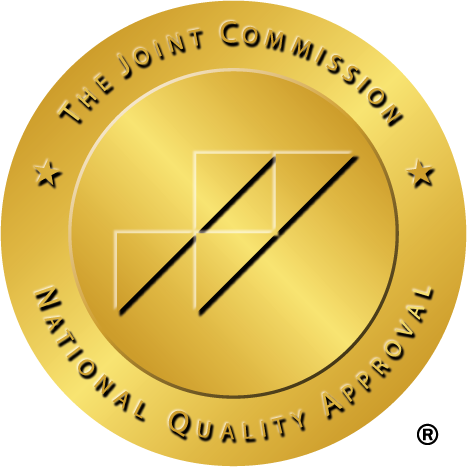Getting support from trained psychologists is important, especially when there is the potential of certain underlying medical conditions that could be impacting your mental health. Although most psychological evaluations and assessments are an option for individuals seeking treatment, this is not always the case[1].
SPEAK WITH AN ADMISSIONS SPECIALIST
What Is A Court-Ordered Psychological Evaluation?
Court-ordered psychological evaluations are mandatory screenings ordered by a judge or other legal entity as part of certain legal proceedings.[2] These evaluations are managed and monitored in controlled settings with licensed psychologists and psychiatrists who use a variety of mental health exams to diagnose the mental stability of individuals.
Court-ordered psychological evaluations have played a major role in today’s justice system. The results are heavily scrutinized to help inform the jury and judge’s decisions at the end of a legal proceeding.
Why Do The Courts Order Psychological Evaluations?
Psychological evaluations mandated by a court can serve various purposes, including conducting a comprehensive mental health evaluation for court proceedings. Typically, in legal proceedings, the prosecuting side may request an assessment of the defendant’s mental capacity to ascertain their level of responsibility for their actions. These evaluations are employed in several situations, including:
Assessing Competency
The principal justification for psychological evaluations ordered by the court is to assess an individual’s competence. Competence includes a person’s capacity to comprehend the outcomes of their deeds and their capacity to engage in their defense. This is vital to determine if someone is eligible to face trial or have a say in their legal representation.
Child Custody Disputes
Psychological evaluations can help make informed decisions by the courts during child custody disputes.[3] For example, some parents may be ordered to undergo a psychiatric evaluation to ensure they are mentally equipped to care for themselves and another person. This information is pivotal for the court to make a ruling in the child’s best interests.
Criminal Responsibility
Psychological assessments are vital in determining an individual’s legal accountability for their actions. They gauge whether the accused suffered from a mental disorder during the offense, which could result in a verdict of not guilty by reason of insanity. They can also determine an individual’s ability to form the required intent to commit a crime.
Sentencing Considerations
Conducting psychological evaluations can provide insight into an individual’s likelihood of reoffending, their potential for rehabilitation, and any mitigating factors that may warrant a more lenient sentence. They may also assess an individual’s risk of self-harm or suicide while in custody, which could influence the court’s decision on appropriate sentencing measures.
Who Can Ask for a Psychological Evaluation?
While various sources can request psychological evaluations, very few are legally mandated. Here are some examples of who can and often do request psychological evaluations:
Courts
Courts may be the most common entity requesting a legally binding psychological evaluation. Judges often order a court-ordered mental health evaluation in cases where an individual’s mental state is relevant to the legal proceedings.
Examples include:
- Determining whether an individual is competent to stand trial
- Assessing parental fitness in child custody disputes
- Evaluating an Individual’s decision-making capacity in guardianship cases
- Assessing mental health as a mitigating factor in criminal sentencing
In these situations, the court will appoint a qualified mental health professional to conduct the evaluation and provide a written report with their findings.
Attorneys
Attorneys representing clients in legal matters may also request psychological evaluations. This can be particularly important in cases where mental health issues play a significant role, such as:
- Establishing an insanity defense in criminal trials
- Demonstrating diminished capacity in civil cases
- Presenting evidence of emotional distress in personal injury lawsuits
Attorneys may seek a qualified mental health professional to conduct the evaluation and provide expert testimony in court. The evaluation results can be critical in influencing the outcome of a case.
Employers
As a part of pre-employment screening, employers may require a psychological evaluation, mainly for roles involving high responsibility or stress. This assessment aims to ascertain the mental stability of candidates, ensuring they can perform their job duties safely and effectively.
Insurance Companies
In cases of personal injury or disability claims, insurance companies may require psychological assessments to accurately gauge the extent of an individual’s mental trauma, assess the impact on their daily functioning, and determine the fair amount of compensation they are entitled to.
Steps Needed to Acquire a Court-Ordered Evaluation
Court-ordered evaluations aren’t handed out immediately, and there is a step-by-step process that both attorneys and their clients need to follow before evaluations are mandated by a judge. These steps include:
1. Motion Gets Filed
Legal counsel will submit a motion in court to obtain a mandated assessment. The document will comprehensively depict the causes of the assessment, the precise concerns to be evaluated, and the assessor’s credentials. The motion usually contains pertinent legal references and judicial precedents endorsing the plea.
2. Opposing Parties are Served
Upon filing the motion, it is imperative that the opposing party is served with a copy. This vital step, in particular, guarantees that they are aware of the motion’s request and have ample time to provide a suitable response. The opposing party reserves the right to challenge the request or propose alternative evaluators if they so desire.
3. A Hearing Will Be Scheduled
A hearing will be scheduled to address the motion for a court-ordered evaluation where each party can present their arguments and evidence to the judge. The judge will determine whether to grant the motion and order an evaluation based on the information presented.
4. Evaluators are Selected
Upon the judge’s approval of the assessment, a qualified evaluator will either be appointed, or the involved parties will be permitted to organize one. The evaluator must be a licensed mental health professional equipped with sufficient experience in the specific matters concerning the case.
5. Evaluation is Conducted
The assessment will be carried out by a qualified evaluator and may entail analyzing interviews, conducting psychological tests and scrutinizing records. The duration of the process may vary based on the intricacy of the case and the assessor’s timetable, which could take several weeks or even months.
6. Review of the Evaluator’s Report
Following the assessment, the evaluator will furnish the court and both parties with a well-documented report featuring key findings, assessments, and proposals. Both parties will have unrestricted access to the report, allowing them to analyze and discuss the contents with their respective counsels.
7. Report is Revealed in Court Proceedings
The report submitted by an evaluator holds significant weight when presented as evidence in legal proceedings, including hearings or trials. Additionally, both sides may summon the evaluator as a witness to testify about their discoveries and viewpoints. Ultimately, the evaluation and other pieces of evidence will be thoroughly evaluated by the judge or jury while making a well-informed decision.
Court-Ordered Psychological Evaluation FAQs
As part of the evaluation process, you’ll be interviewed by a trained psychologist and guided through a series of tests. This will assist the evaluator in obtaining a comprehensive assessment of your background, mental health history, and current functioning. All necessary measures will be taken to guarantee a thorough and professional assessment.
The duration of the evaluation process is contingent upon the complexity of the case and the particular issues under evaluation. Generally, it requires multiple sessions over several weeks, encompassing interviews, observations, and psychological testing.
Although the information you provide to the evaluator is typically kept confidential, you should be aware that the evaluation results could be disclosed to the court, legal counsel, and other pertinent parties involved in the legal issue. This underscores the significance of providing accurate and complete information during the evaluation process.
In the event that you decline to participate in legal proceedings without a justifiable explanation, the court may draw unfavorable conclusions against you. This could potentially harm your case. Therefore, it is imperative that you seek advice from your legal representative before making a decision regarding participation or refusal.
If you suspect that the assessment was erroneous or prejudiced, you may be able to dispute the outcome. Your legal representative can solicit an alternate assessment or provide supplementary evidence to counteract the evaluator’s conclusions.
SPEAK WITH AN ADMISSIONS SPECIALIST
Related Topics
Sources
[1] Overview of Psychological Testing. National Library of Medicine. (n.d.-d). https://www.ncbi.nlm.nih.gov/books/NBK305233/ on May 19, 2023
[2] van Kan, C., & Kumar, S. (2020, September 2). Court-ordered assessments and routine access to confidential health information: Findings from a Regional Forensic Mental Health Service. Psychiatry, psychology, and law : an interdisciplinary journal of the Australian and New Zealand Association of Psychiatry, Psychology and Law. https://www.ncbi.nlm.nih.gov/pmc/articles/PMC9090386/ on May 19, 2023
[3] Chung, D. S., Moon, D. S., Lee, M. H., & Kwack, Y. S. (2020, April 1). Custody evaluation process and report writing. Soa–ch’ongsonyon chongsin uihak = Journal of child & adolescent psychiatry. https://www.ncbi.nlm.nih.gov/pmc/articles/PMC7289475/ on May 19, 2023


